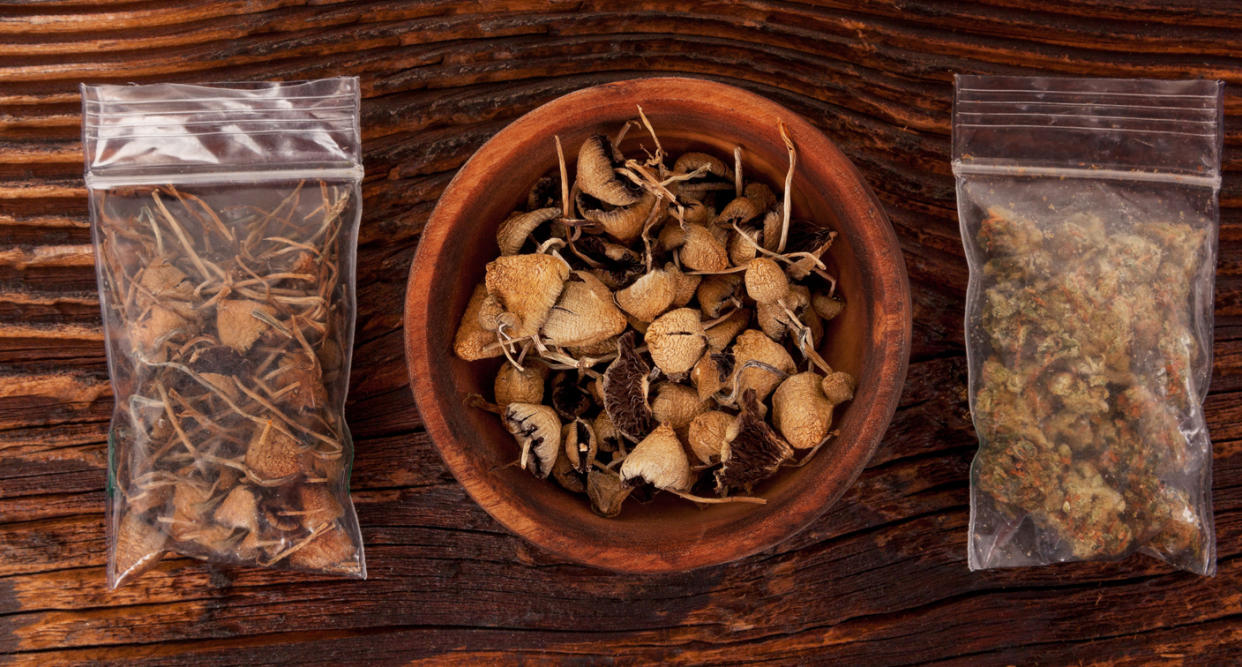Researchers discover a way to produce promising drug from mushrooms to treat depression

Miami University of Ohio researchers have discovered a way to sustainably produce a promising drug used for treatment-resistant depression — and it comes from the ground.
In a new study in the journal Metabolic Engineering, J. Andrew Jones, PhD, an assistant professor at Miami’s department of chemical, paper, and biomedical engineering, along with a team of undergraduate students discovered a way to sustainably produce psilocybin — an active compound that’s naturally found in a type of psychedelic mushroom called Psilocybe cubensis — in large quantities.
Psilocybin, which is currently in several clinical trials, shows promising results in treating depression (including treatment-resistant depression in which standard therapies aren’t helping), as well as addiction and post-traumatic stress disorder (PTSD).
However, producing large quantities of the ingredient would require “extensive real estate” to plant the mushrooms and “time,” according to a statement released by Miami University. Although there are synthetic versions of psilocybin, the researchers note that they’re very expensive. So the Miami University researchers looked for ways to sustainably produce psilocybin in a more affordable and faster way. They were able to do so by genetically engineering a host — in this case, the bacteria E.coli — to produce psilocybin.
“The main goal of the research was to show the potential of a genetically-modified strain of E. coli to produce psilocybin in a sustainable, reproducible, and controlled way,” Jones tells Yahoo Lifestyle. “The hope is that this strain will be a faster, cheaper, and/or more controlled method for psilocybin production than current production methods (mushroom, synthetic chemical synthesis). This production method is being developed in response to positive clinical trial results performed elsewhere and in anticipation of FDA approval in the future.”
In the study, researchers were pleasantly surprised about the speed at which they were able to produce psilocybin, compared to growing actual mushrooms. “Over the course of this study we improved production from only a few milligrams per liter to over a gram per liter, a near 500-fold increase,” Jones said in a statement.
“In theory, enough mushrooms could be grown, but it is not all that practical,” Jones tells Yahoo Lifestyle. “Our production process [in the study], from beginning to end, only takes a few days to complete compared to much longer for mushrooms. Additionally, the E. coli route also would be less variable, enabling a more consistent pharmaceutical product.”
The study results are significant because Jones and his fellow researchers “enabled a common commercially-available strain of bacteria (E. coli) to have the ability to produce psilocybin.” He adds, “This is the first time a bacteria has been reported to make the compound.”
So what’s next? More research, of course.
“We are currently working to improve the genetic background of our E. coli strain to make it a more stable and efficient host for the biosynthesis,” Jones tells Yahoo Lifestyle. “As with all research, it will take some time to develop the technology, but we do plan to publish our findings once they are discovered and reproduced. Stay tuned!”
Read more from Yahoo Lifestyle:
Follow us on Instagram, Facebook and Twitter for nonstop inspiration delivered fresh to your feed, every day.

